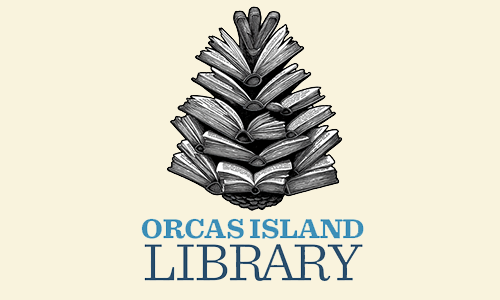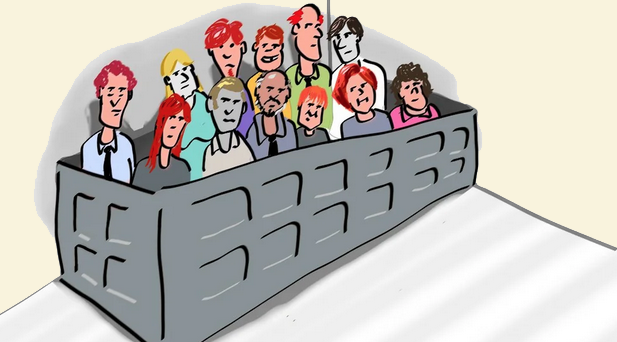(Editor’s note: Originally posted March 9, 2010)
Those interested in obtaining help in applying for this exemption can contact Jane Heisinger at the Orcas Island Senior Center (376-2677), who will set up appointments with the Orcas Island School District Budget Advisory Committee members).
From the San Juan County website, www.sanjuanco.com
If you are a senior citizen or if you are disabled, Washington State has two programs that may help you to pay your property taxes and/or special assessments. Your household income and your age or disability determines your eligibility for both programs.
The Senior Citizen and Disabled Person Property Tax Exemption Program freezes the value of your residence, exempts all excess levies, and may exempt a portion of regular levies. This results in:
- Freezing the value of your residence as of January 1 of the initial application year, and
- Providing you with a reduction in your property taxes
The assessor will continue to establish the market value of the property, however, you will only be billed for the taxes on the frozen value.
Further information about this exemption is available at sanjuanco.com/assessor/exempt
An application form may also be obtained at this site.
ELIGIBILITY REQUIREMENTS
Age or Disability
You must be at least 61 years old on December 31 of the year in which you apply,
or
You must be unable to work because of a physical disability. As proof of disability, you must send a doctor’s statement with your application.
Ownership
The exemption is available for your principal home and up to one (1) acre of land. If your local land use regulations require that you have a parcel of land larger than one acre for your home, the exemption may also extend to the additional acreage, up to a maximum of five (5) acres.
The property must be your principle home at the time you apply for the exemption. A mobile home may qualify as your residence, even if you do not own the land where the mobile home is located. You must occupy the home for at least six (6) months each year.
Your residence may qualify even if you are temporarily in a hospital or nursing home. You may rent your residence to someone else during your hospital or nursing home stay, if the income is used to pay the hospital or nursing home costs.
Property used as a vacation home is not eligible for the exemption program.
You must own the home for which the exemption is claimed, either in total (fee owner), as a contract purchaser, mortgagee, deed of trust or as a life estate (including a lease for life). If you transfer your home under a revocable trust agreement, you must retain the full use of the property and be able to revoke the trust and take ownership at any time. Irrevocable trusts qualify, if they can be deemed a life estate.
A home owned by a married couple or by co-tenants is considered owned by each spouse or co-tenant. Only one person must meet the age or disability requirement.
If you share ownership in a cooperative housing unit, you will be considered an owner, if your share represents the specific unit or portion where you live.
Leasehold Interest
If your primary residence or the land under your primary residence is owned by a government entity, you are eligible for a comparable exemption, if you meet the minimum qualifications.
Household Income
Your annual household income may not exceed $35,000. Household income includes your disposable income, that of your spouse, and any co-tenants. A co-tenant is a person living in your home who also has an ownership interest.
Household income does not include:
- The income of a person, other than a spouse, who does not have ownership interest and lives in your home. However, the application must show any income the person contributes to the household,
- The income of a person who has ownership interest and lives elsewhere. However, if someone living elsewhere has any ownership interest, the amount of your exemption will be based on the percentage of your interest in the property.
COMPUTING DISPOSABLE INCOME
The maximum amount of annual income you may receive to qualify for the exemption is $35,000. The disposable income you receive during the year you apply determines your eligibility. (The assessor will require proof of income.) Disposable income includes all sources, whether or not they are taxable for federal income tax purposes. Losses and depreciation may not be deducted. Some of the most common sources of income include:
- Wages, salaries, and tips.
- Social Security benefits.
- Railroad retirement benefits.
- Pension and annuity receipts, including retirement bonds, Individual Retirement Accounts, and distributions from Keough plans. An annuity is a payment of a fixed sum of money received at regular intervals. Some examples of annuity payments include unemployment compensation, disability payments, and welfare receipts (excluding amounts received for the care of dependent children).
- Interest and dividend receipts.
- Business income. Depreciation and business losses may not be deducted.
- Rental income. Depreciation and rental losses may not be deducted.
- Capital gains.
If you were retired for two or more months during the application year, your household income will be computed by multiplying the average monthly disposable income received during the months you were retired by twelve. If your spouse died before November 1 of the application year or you have a significant change in income that is expected to last an indefinite period of time, your household income is computed by multiplying the average monthly disposable income, after the occurrence, by twelve.
Deductions from Disposable Income
To determine your disposable income, you may take deductions for the following:
- Capital gains you receive from the sale of your principle residence, IF the gain is reinvested in a replacement principle residence.
- Non-reimbursed amounts you pay for your spouse, yourself, or co-tenant to live in a nursing home.
- Non-reimbursed amounts paid for prescription drugs for yourself, your spouse, or co–tenant.
- Non-reimbursed amounts you pay for goods and services that allow you, your spouse, or co-tenant to receive in-home care. The care received must be similar to the care provided by a nursing home.
- Medical treatment, physical therapy, Meals on Wheels (or similar meal delivery service), and household and personal care. Personal care includes assistance with preparing meals, getting dressed, eating, taking medications or areas of personal hygiene.
- Special furniture and equipment, such as wheelchairs, hospital beds, and oxygen.
Exemptions
The gross income maximum limit for the Exemption Program is $35,000. The three tiered benefit [provides for] the assessed value [to be} frozen as of the year of application, and remain frozen for the duration of participation in the exemption program. Therefore, taxes are paid only on the frozen value for the duration of your participation in the exemption program, even though the market value of your property may increase. You also have the right to apply for the exemption retroactively for three (3) previous years, using separate application forms and income documentation for each year.
**If you are reading theOrcasonian for free, thank your fellow islanders. If you would like to support theOrcasonian CLICK HERE to set your modestly-priced, voluntary subscription. Otherwise, no worries; we’re happy to share with you.**







